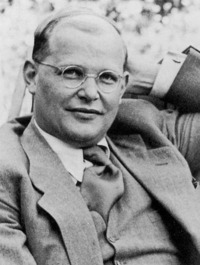As we renew our mission to be the church, here are some thoughts about the church from a year’s worth of sermons.

Going solo with faith
I have a confession to make. During my break from pastoral ministry, I often felt the temptation to go solo with my faith. I would go for a Sunday morning run along the Tar River in Greenville. There, I would pray and enjoy being alive in God’s creation, and think to myself, “This is the way to do church! There is no one to disagree with me. There is no one sharing their problems with me, making me uncomfortable, and taking up my time. And I must confess, it was rather nice!
However, I must also confess it was very selfish. It was arrogant, and it was self-righteous. The truth is: it was the very antithesis of who Jesus calls us to be as his disciples.
From People Grumble But Angels Sing
The church is the light of the world
We are to shine our lights by lifting up, accepting and caring for all people, especially those the world leaves behind. We are to light it up by loving, accepting, and caring for the least among us: the poor, the weak, those who need mercy, the marginalized who hunger and thirst for justice, the obviously flawed but pure in heart, and the troubled who yearn for peace.
Will we look like fools? You bet. Will people say that the way we accept and love and affirm others is socially and even theologically unacceptable? It’s likely. Will we be demeaned and even persecuted by others in the community, even other churches? Perhaps.
From Light It Up
Got Jesus? Oh God, I hope not!
If Jesus is something or even someone that we get, then church becomes just another product whose members are mere consumers. Thus, like going to a store, the spa, or the local cineplex, church becomes some place we go to get something. Some go to get fed. Others go to get nurtured and pampered. Some go to get entertained.
However, if it is Jesus who gets us, if Jesus is about us giving ourselves to the God revealed in Christ, then church means a radical, self-denying, sacrificial way of living.
If Jesus is about giving one’s life away, then the church becomes something much more than a self-help center offering self-improvement workshops.
Wednesday night becomes less of a time to get fed, physically and spiritually, and more of a time to pray for others, celebrate the joys of life with others, and even suffer with others. It becomes a time to build a community of selfless love and forgiveness with others. Bible study becomes less of a time to acquire more biblical knowledge than others and more of a time to consider how the scriptures inform our service to others.
Sunday morning becomes less about what God has to offer us and more about what we have to offer God. When we eat the bread, we do not consume it. When we drink from the cup, we do not merely swallow it. We allow it to consume and swallow us, every part of us. And we commit ourselves to presenting our own bodies as living sacrifices for others, pouring our very selves out for others in the name of the God who emptied God’s self out for us.
And every day of the week, we become more than Christians who possess exclusive tickets to heaven in hand. We become the Light of the World.
Got Jesus? O God, for the sake of this community and for sake of this world, I pray not. Amen.
From Got Jesus?
It only takes a spark
The truth is, when our church becomes nothing but a safe, static sanctuary, a place of secure stability where nothing really ever changes, where we can cool off, cool down and just for sixty-minutes a week, chill out, we are not fulfilling our purpose as the children of a dynamic, dancing God. We are not the incendiary force that Jesus ignites us to be. And we are one boring sight—to God as well as to the world.
Yet, when we be become ignited, fired up, disrupted, when we allow ourselves to be engaged by the Christ, when we truly decide to follow him, each of us using the gifts we have been given by the fiery Holy Spirit to serve him, to truly love all people, to meet the needs of our community; when we lose ourselves and become caught up in God’s dance, discover God’s purpose, we become a purifying and warming blaze, and it is, I promise you, a glorious site to behold, to God, as well as to the world.
When others see that that we look like the fiery Holy Spirit of Jesus—when they see us mowing a neighbor’s lawn, growing fresh vegetables for the needy, serving the soup kitchen, giving to help the poor in our community with rent and utilities, delivering meals on wheels to the elderly, adopting a nursing home resident, planning to help repair a stranger’s home in West Virginia, going back to Nicaragua, when they read on our sign, “All Are Welcomed to Worship and to Serve”, when they see that we are always willing to change and adapt, even reorganize—others will want to join us and serve alongside us.
From I Smell Smoke
The church is in the clothing business
I believe with all of my heart that this is one of our primary purposes as a community of faith. We are to always be a community of grace. If people cannot come through the doors of the church and take off their masks, stop the charade, and honestly lay bare all of their sin and all of their grief, knowing that they will never be judged, looked down upon or condemned, then I do not believe we are a church. I am not sure what type of business we’re running, but we are not a church, we are not a community of grace. As a church we are to always be in the business of yearning to meet people where they are, so we can be with them, so we can walk alongside of them, so we can listen to them, learn from them, forgive them and love them.
From Grace in Genesis: Adam and Eve
The first word people should hear from the church
The first word they hear from the church should never be judgment, condemnation or some loud, angry, hate-filled rant or protest. It should never be that God took her or snatched him, or is punishing them, or trying to get their attention because of some sin. No, the first word they need to hear from us is “peace.” They need to hear God say, “Peace. My peace I give to you. You are my sons. You are my daughters, I have always loved you. I still love you. I will love you forever. I am here with you and for you, always working all things together for the good.”
I believe people in our world who have locked their doors to the church are thirsting for this peace. They are thirsting for a group of people in our world that have the audacity to truly live as the embodiment of Christ in this world offering the first word of Easter, the peace of Christ to a fearful world through selfless, sacrificial love and service to others. They are thirsting for a church that seeks to be, not an institution, but the living embodiment of Christ in this world, serving the poor, and those whom society has marginalized, offering grace, acceptance, love and peace.
From The First Easter Word
We learn from others
Dare to leave your comfort zone to minster to those who are struggling somewhere in a foreign state, but when you go, it is important to realize that you do not go as if you are one with all of the answers, possessing all of the faith, going out as if on a crusade to save all those with less faith. Because oftentimes, says Jesus, it is the one living on the edge, the foreigner, who can teach us a thing or two about faith in God and salvation.
From Welcome Home! Too Bad You Can’t Stay
Embracing Diversity
Therefore, if we ever act or speak in any manner that denigrates or dehumanizes another because of their race, language, nationality or ethnicity, we are actually disparaging the God who willed such diversity. According to Genesis, diversity is not to be feared, avoided, prevented or lynched. If we want to do the will of God our creator and redeemer, diversity is to be embraced. In other words, if we love God, we will also love our neighbor. And this is what God wants us to be united by. It is why Jesus called it the greatest commandment—love God and our neighbors as ourselves. Love is what should unite us; not racial pride or patriotism.
From Grace in Genesis: Tower of Babel
Allowing the words and works of Jesus to interpret the Bible for us
From Baptism Obstacles
The world would be a much better place today if more people understood that the Bible needs to be interpreted. I do not believe God ever intended for people, on his or her own, to pick up the Bible, and arbitrarily lift scripture passages out of their contexts, and try to understand it or follow it. I believe this is one of the reasons that baptism statistics are in such a decline today. Too many Christians are using the Bible out of context to support all kinds of hate and injustice. And because of that there are countless people in this world, countless people in this community, who are the victims of bad religion. They feel marginalized and disenfranchised by the church. They have been taught their entire lives that God despises them. They have no idea that God loves them and has a future for them— All because no one has interpreted the Bible pointing to the Jesus who came into the world, not to condemn the world by to save the world, to love the world.
Luke tells us that the Spirit had to urge Philip to get up and go to the chariot to see this Eunuch from Ethiopia. Go to the chariot and meet this strange foreigner; this victim of bad religion who had been ostracized from the community of faith; this one demeaned and exploited for his sexuality; this one who has been clobbered by the Bible by those who arbitrarily pick and choose scripture passages like Deuteronomy 23:1 that says they are forbidden to enter the temple; this one who has been taught his entire life that he is despised by God. Go, Philip, and meet him where he is. Do not stand above him or over him. Do not judge him or condemn him. Join him. Get into the chariot and sit beside him. Ride alongside him. Engage him. Listen to him. Learn from this other, this stranger, this foreigner.
From Baptism Obstacles
We are born holding hands
This past Mother’s Day, a rare set twins were born in Ohio. They were called mono, mono twins, meaning that they shared the same amniotic sac and thus were in constant contact with one another. However, it was not the mono, mono rarity that got them so much attention this week. Jillian and Jenna Thistlewaite were miraculously born holding hands.
One of the most popular songs when I was born back in 1966 was entitled, Born Free. “Born free, as free as the wind blows, as free as the grass grows, born free to follow your heart.”
It’s a nice song. However, when you take a good look at Jillian and Jenna Thistlewaite, we learn something completely different. We were not born to be independent and free, but we were born to be utterly dependent on one another. We were born to need one another. Jillian and Jenna remind us that Christ has commanded us to love one another, to link up with one another in mutual care and concern, and to feel responsibility for one another. We were born to live in community.
We were not born free, as the song goes. We were born holding hands.
From Born Holding Hands
We must be willing to share in the suffering of others
Another reason I believe people are leaving the church is that they see within the church a group of people who fail to see the importance of true fellowship, of suffering with others.
Today, this can most obviously be seen on social media, especially facebook. Someone will post a tragic circumstance: the loss of a job, the loss of their health, or even the loss of a child. Then come the God-awful comments: “God doesn’t make mistakes.” “God has a purpose.” “God has a plan.” “God knows best.” “God needed another angel.”
For some reason or another, some Christians think it is their mission to help others avoid suffering, as they think suffering somehow means their faith is weak. They believe they must say something to fix the problems of another, to say something theological to make everything better. However, their trite comments are seen as uncaring, unsympathetic, distant, and cold. And people everywhere read those callous comments and think, “If that is the church, then I want no part of it.”
Henri Nouwen has written: “When we honestly ask ourselves which persons in our lives mean the most to us, we often find that it is those, who instead of giving advice, solutions, or cures, have chosen rather to share our pain and touch our wounds with a warm and tender hand. The friend who can be silent with us in a moment of despair or confusion, who can stay with us in an hour of grief and bereavement, who can tolerate not knowing, not curing, not healing and face with us the reality of our powerlessness, that is a friend who cares.”
From Renewing our Fellowship Mission





 One day, noticing the growing number of people following behind him, like a scene in Forrest Gump, Jesus suddenly stops, turns to the masses and says something like: “Do you people really know what this is all about? Do you really know what you are getting yourselves into here? Because I am not so sure the crowd would be this large if you really knew! Do you really understand what you are signing up for here? Do you really get this journey called, ‘discipleship’? Because, I have a sinking suspicion that most of you do not have a clue.”
One day, noticing the growing number of people following behind him, like a scene in Forrest Gump, Jesus suddenly stops, turns to the masses and says something like: “Do you people really know what this is all about? Do you really know what you are getting yourselves into here? Because I am not so sure the crowd would be this large if you really knew! Do you really understand what you are signing up for here? Do you really get this journey called, ‘discipleship’? Because, I have a sinking suspicion that most of you do not have a clue.”
 Dietrich Bonhoeffer did not have to help Jews escape Nazi Germany and flee to Switzerland. After all, he was safe and sound in New York in the early 1940’s. He was free to stay in America and preach the gospel from the safety of a free church pulpit or teach New Testament in the peace and freedom of a university. But the gospel he preached compelled him to return to Germany and stand against Nazi aggression.
Dietrich Bonhoeffer did not have to help Jews escape Nazi Germany and flee to Switzerland. After all, he was safe and sound in New York in the early 1940’s. He was free to stay in America and preach the gospel from the safety of a free church pulpit or teach New Testament in the peace and freedom of a university. But the gospel he preached compelled him to return to Germany and stand against Nazi aggression.

